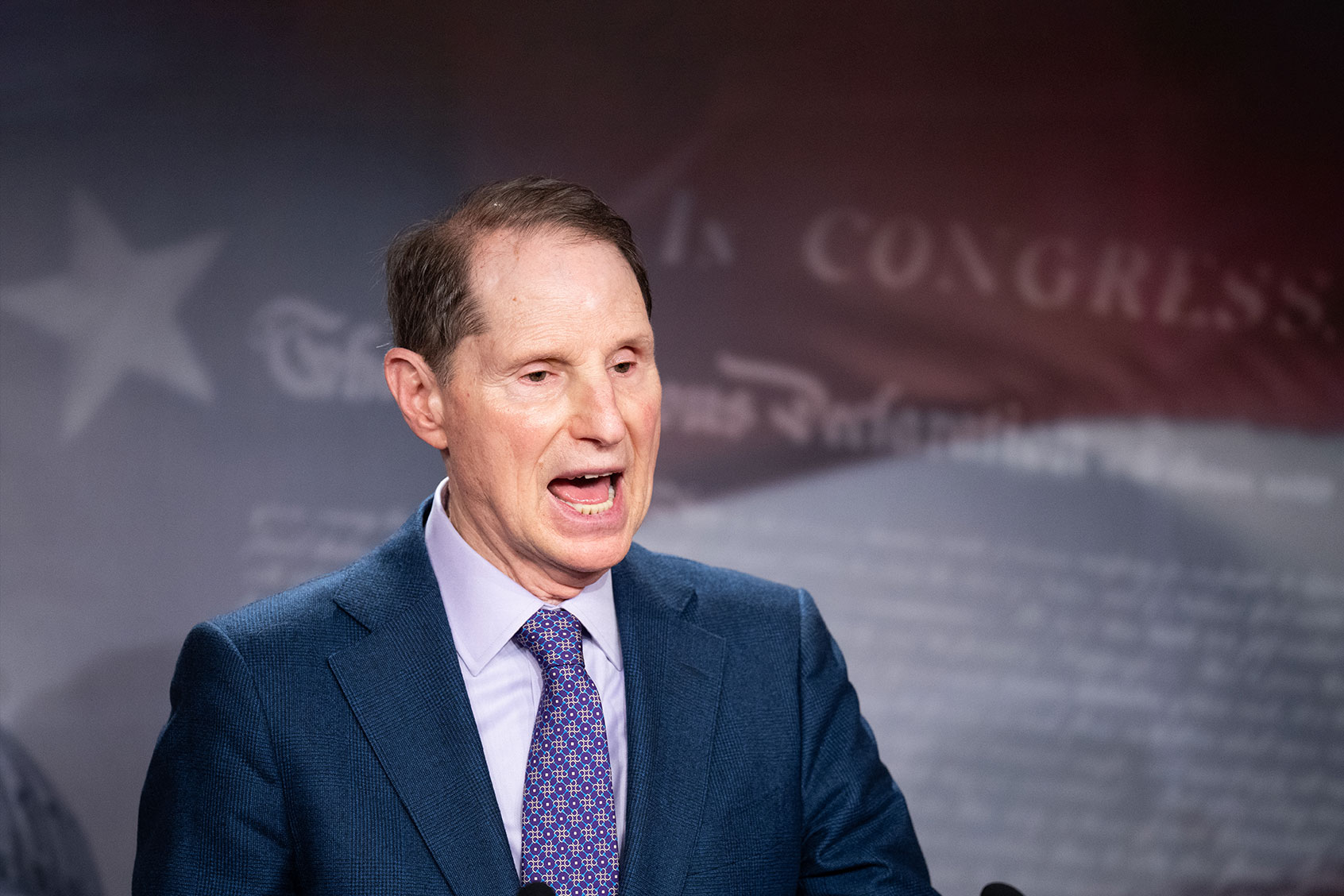Democrats in Congress have expressed strong opposition to President Donald Trump‘s intentions to direct the Internal Revenue Service (IRS) to investigate left-leaning organizations and political adversaries. This move is viewed as a significant misuse of governmental authority aimed at quelling dissent.
Senate Finance Committee Ranking Member Ron Wyden, D-Ore., criticized the strategy in a statement, asserting that Trump operates as if he is above the law, determined to use every agency at his disposal to suppress political opposition. Wyden remarked, “The Trump administration will try to legitimize this abuse with legal opinions and procedural lingo, but the implicit threat is that if you give to a progressive cause, they’ll deem you a terrorist and ruin your life.”
A report from the Wall Street Journal revealed that the Trump administration plans to revise the IRS’s investigative protocols, potentially increasing scrutiny on groups and individuals who oppose the president’s political agenda. Gary Shapley, an adviser to Treasury Secretary Scott Bessent, is expected to be appointed as the head of the IRS’s criminal investigative division. Bessent, currently serving as acting IRS commissioner, has been tasked by Trump to gather financial information on politically progressive organizations.
Concerns Over Authoritarianism
Vice Chairman of the Senate Intelligence Committee, Mark Warner, D-Va., described Trump’s actions as “absurd and dangerous,” emphasizing the implications of weaponizing the IRS against perceived foes. He stated on social media, “As if Trump’s weaponization of the justice system hadn’t gone far enough, now he’s weaponizing the IRS against his perceived enemies. It’s a clear and authoritarian attempt to silence critics.”
Representatives in Congress are increasingly alarmed by the potential ramifications of such actions. Rep. Jimmy Gomez, D-Calif., voiced his concerns, stating that the nation should be “worried” about Trump’s use of the IRS to target political adversaries. He remarked, “Trump is illegally going after his political enemies with the IRS, the very kind of abuse of power that destroys democracies from within.”
Democratic leaders are calling for vigilance against what they perceive as an escalating trend towards authoritarian governance. They stress the importance of safeguarding democratic institutions from political interference, particularly when it involves an agency like the IRS that has significant influence over financial matters.
As the situation unfolds, the political landscape in the United States is expected to become increasingly contentious, with debates surrounding the legitimacy of these actions likely to intensify. The implications of the president’s directive could have far-reaching effects on political discourse and the operational integrity of federal agencies.
Democrats are urging citizens to remain alert to these developments, as they prepare to challenge any attempts to misuse government power for political gain. The potential for political retribution through the IRS raises critical questions about civil liberties and the future of political engagement in the country.





































































